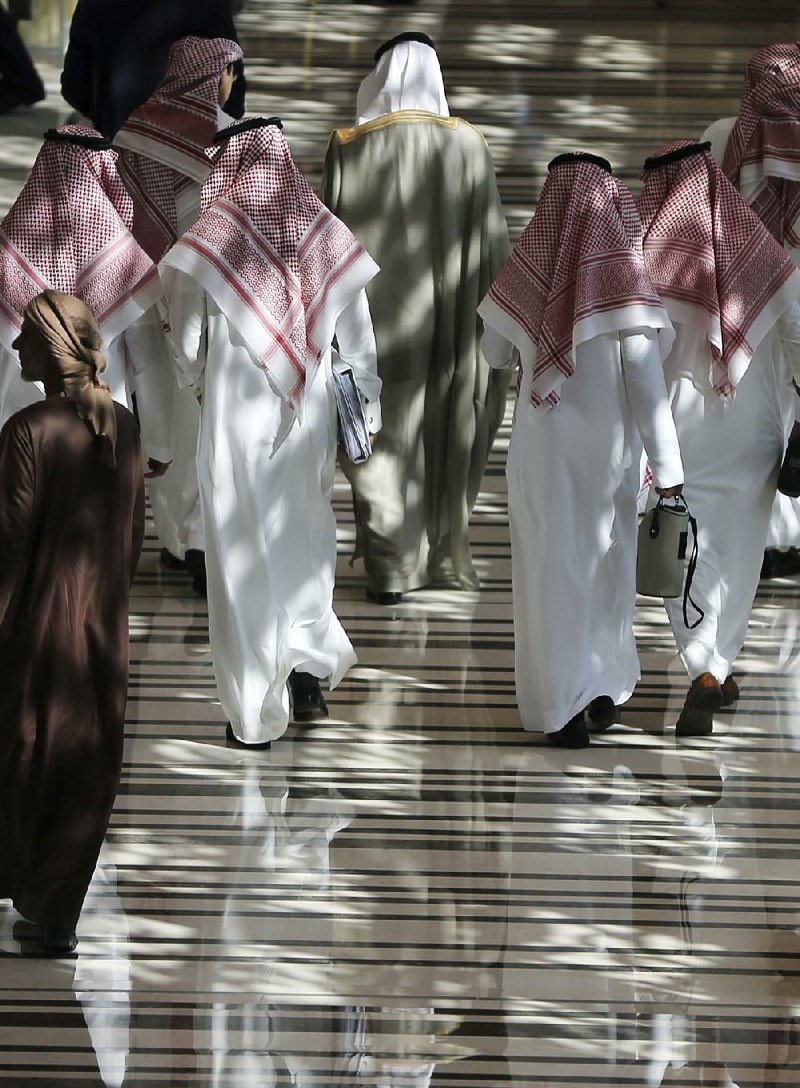ABU DHABI, United Arab Emirates -- The head of OPEC said Thursday that he remains "confident" that the cartel and outside members will stick to an agreement to cut production to help raise oil prices.
The comments by OPEC Secretary-General Mohammad Sanusi Barkindo of Nigeria come as the cartel and nonmembers try to stick to the landmark deal after oil prices collapsed last year.
Members of the Organization of Petroleum Exporting Countries agreed in late November to cut production by a combined total of 1.2 million barrels a day, the first reduction agreed to by the cartel since 2008. Nearly a dozen other countries pledged in December to cut an additional 558,000 barrels a day.
"I remain very confident with what I have seen in the last several months," Barkindo said at the Atlantic Council's Global Energy Forum in Abu Dhabi. "The level of commitment from both sides ... is unparalleled."
He added that there's been "a high level of compliance." However, how that compliance will be verified has yet to be determined.
Kuwaiti Oil Minister Essam al-Marzouq, who leads a five-nation OPEC committee monitoring compliance, said that should be judged on the average at the end of the six-month cut.
Al-Marzouq declined to offer any other specifics ahead of a planned committee meeting in Vienna beginning Jan. 21. However, Iraqi Oil Minister Jabar Ali al-Luaibi pledged his country would meet its required cuts by the end of January.
Saudi Arabia has reduced oil production to less than 10 million barrels a day, below its targeted level, Saudi Energy Minister Khalid Al-Falih said.
"Oil production now is below 10 million so far," he told reporters Thursday. "So, we're going the extra mile to lead our colleagues within and outside of OPEC to make sure that the market sees that there's serious action in place."
Crude oil sold for over $100 a barrel in the summer of 2014 before bottoming out below $30 a barrel in January 2016. West Texas Intermediate crude for February delivery rose 76 cents Thursday to settle at $53.01 a barrel on the New York Mercantile Exchange.
Producers acknowledged that they hoped for higher prices, especially those in the Persian Gulf, whose crude-based economies have been hurting. Also hurting are the oil-dominated economies of Venezuela and Nigeria.
Emirati Energy Minister Suhail al-Mazroui said there is "a fair movement" toward higher prices, though it isn't at a price his nation would like.
"The real correction will happen when we see the actions of all of those ... concerned nations who came together to try to help the market," he said.
Al-Falih echoed that viewpoint.
"We want moderation. We want to reduce volatility; we cannot eliminate it," he said. "We also want prices that are supportive of continued production as well as equally important continued consumption."
However, Patrick Pouyanne, CEO of French oil firm Total SA, offered a stark warning, saying there's a lot still unknown in the market -- especially ahead of the inauguration of President-elect Donald Trump. Oil ministers, most notably al-Falih, dodged answering questions about what Trump's protectionist views could mean for international markets.
"I'm not sure we fully understand what would be Mr. Trump's policies, but I'm sure it will be America first," Pouyanne said.
Information for this article was contributed by Mahmoud Habboush, Anthony DiPaola and Sam Wilkin of Bloomberg News.
Business on 01/13/2017
